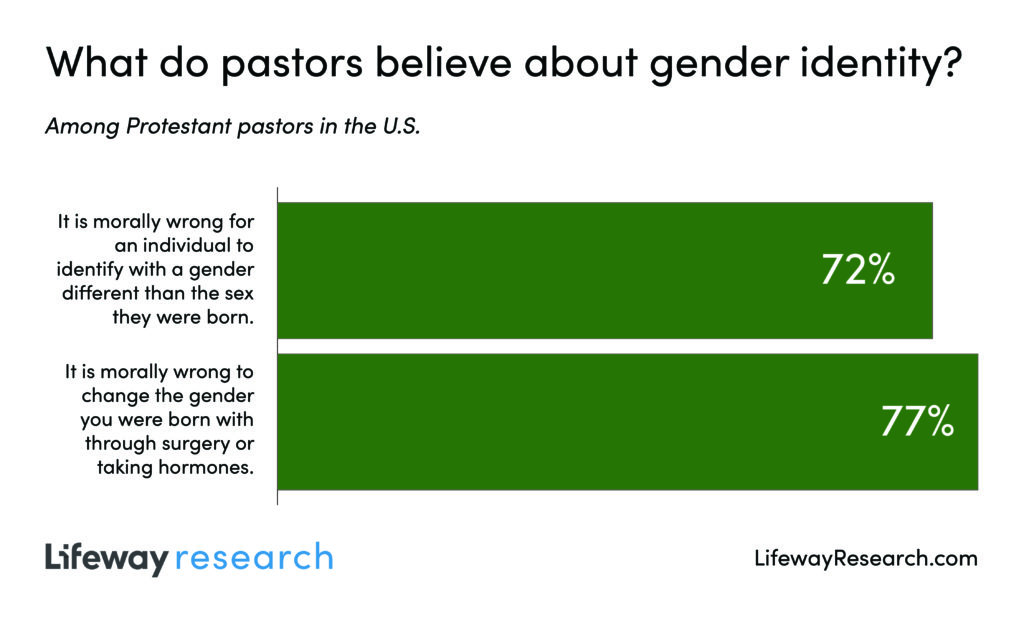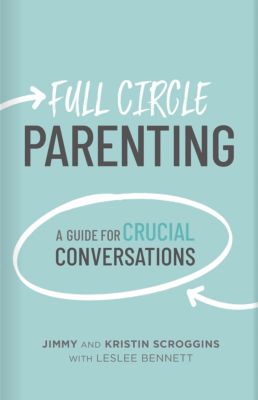
By Aaron Earls
A slim majority of U.S. adults say changing genders, identifying as a gender different than one’s biological sex, is morally wrong.
According to the latest survey from Gallup on morality, 51% of Americans say it is immoral to change genders, while 46% say it is morally acceptable.
The study also found significant demographic divides. Men (56%) are more likely than women (47%) to say transition to a different gender is morally wrong. Non-white American adults are more likely to see gender changes as morally wrong compared to white Americans. (55% to 49%). Politically, 3 in 4 conservatives believe changing genders is morally wrong, 3 in 4 liberals see it as morally acceptable, and moderates are evenly split (48% to 48%).
51% of Americans say it is immoral to change genders, while 46% say it is morally acceptable, according to Gallup. Click To TweetAge and education also play a role in views on gender transitions. Most Americans over 50 believe such changes are immoral, while most younger Americans view it as morally acceptable. Specifically, a clear majority of 18-to-34-year-olds (54%) say changing genders is OK, while 64% of those 65 and older believe it is morally wrong. Around 2 in 3 college graduates (63%) believe changing gender identities is acceptable, while similar numbers of Americans with a high school diploma or less (65%) say such changes are immoral.
A recent Lifeway Research study of U.S. Protestant pastors found 72% say it is morally wrong for an individual to identify with a gender different from the biological sex they were born. Similarly, 77% of pastors say it is immoral to attempt to change the gender you were born with through surgery or taking hormones.
72% of U.S. Protestant pastors say it is morally wrong for an individual to identify with a gender different from the biological sex they were born, according to Lifeway Research. Click To TweetAccording to an additional Gallup study, only 0.6% of Americans say they are transgender, part of the 5.6% of the population who identify as LGBTQ. Even with the relatively low numbers, 48% of pastors told Lifeway Research they know someone who is transgender. “Despite close to half of pastors saying they personally know someone who identifies as transgender, most still view identifying as a different gender as immoral,” said Scott McConnell, executive director of Lifeway Research.

According to the research, pastors and church leaders in areas with high concentrations of young people and those with increased education are more likely to confront issues related to gender identity. With the rise of the next generation, however, churches will increasingly encounter individuals seeking to identify differently. According to Gallup, 15.9% of Generation Z say they are something other than heterosexual, significantly higher than other generations—millennials (9.1%), Generation X (3.8%), baby boomers (2%), and traditionalists (1.3%).
Other research also indicates many of those individuals not only identify as LGBTQ but also as Christian. One survey found 41% say they’re Christian—23% Protestant and 18% Catholic.
“Don’t assume kids know what the Bible teaches about sex and identity or why it says it. Most Christian students have little depth in regard to their theology of sexuality." — @Sean_McDowell Click To Tweet“Young Christians today are far more influenced by cultural ideas about identity and sex than many pastors realize,” says Sean McDowell, author of Chasing Love. “Don’t assume kids know what the Bible teaches about sex and identity or why it says it. Most Christian students have little depth in regard to their theology of sexuality.”
For Ben Trueblood, director of student ministry at Lifeway, this means “leaders need to be educated on the topic both from a biblical and cultural perspective so they can help students navigate these issues.” Part of that comes from “creating environments where these issues are discussed openly and without awkwardness in the church.”
Church leaders need to be educated on the topic of sexuality and gender from a biblical and cultural perspective so they can help students navigate these issues. — @BenTrueblood Click To TweetMcDowell agrees. “We certainly need to speak biblical truth but work hard to create a place where kids feel heard, understood, and loved.”









